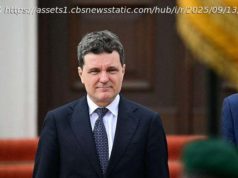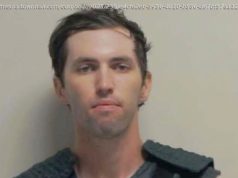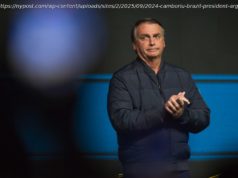In the first trial of its kind, Msgr. Carlo Alberto Capella, who was recalled from his post in Washington in September, admitted possessing and distributing illicit images.
VATICAN CITY — A Vatican tribunal on Saturday sentenced a former Vatican diplomat to five years in prison and a fine of about $5,800 for possessing and distributing child pornography.
The Vatican has been embroiled for decades in a global scandal involving the sexual abuse of minors, but this was the first time in modern history that a sentence had been reached in a trial of its kind. A Vatican spokeswoman said the envoy who was sentenced, Msgr. Carlo Alberto Capella, would now face a canonical trial, which could lead to his removal from the priesthood.
The trial was held over two days, and the hearings lasted less than four hours in total. The judges took just over an hour to arrive at a verdict.
Monsignor Capella remained impassive when the presiding judge, Giuseppe Dalla Torre, read out the sentence, according to reporters in the courthouse inside Vatican City.
Monsignor Capella had not contested the charges against him, and during the first hearing, on Friday, he admitted to “compulsive acts of improper internet consultations” of photographs, videos, and manga cartoons showing adolescent minors engaged in sexually explicit acts. He told the court that he had been going through a personal crisis because he was unhappy to have been transferred to the Holy See’s embassy in Washington, D. C.
The Vatican recalled Monsignor Capella from Washington in September, shortly after the State Department had notified it of a “possible violation of laws relating to child pornography images” by one of the Vatican’s diplomats there. The American authorities had sought to strip his diplomatic immunity and charge him with possession of child pornography, and his recall was denounced by critics as the Vatican’s attempt to shield one of its own.
However, Gian Piero Milano, the Vatican’s chief prosecutor, said on Saturday that it was right for Monsignor Capella to have been recalled for trial because crimes committed by one of the Holy See’s officials in any state were under the jurisdiction of the Vatican.
Monsignor Capella entered the diplomatic corps in 2004. Before being posted to Washington, he served in Hong Kong, India and Italy.
The Vatican trial was another step in Pope Francis’ attempts to repair a series of missteps in the Church’s handling of the sexual abuse crisis. While professing to observe “zero tolerance” when it came to abusive priests and the bishops who mishandled or covered up the conduct, Francis has been accused by critics of being big on words and short on action.
Monsignor Capella is the first cleric to stand trial under a 2013 law that criminalized the possession and distribution of child pornography.
This month, Francis accepted the resignation of three Chilean bishops who had been accused of covering up the actions of one of the country’s most notorious abusive priests. All of Chile’s bishops tendered their resignation last month after meeting with the pope in the Vatican, where he criticized them for their failure to take more forceful measures in curbing abuse in their country.
In final remarks to the court on Saturday, before the verdict was issued, Monsignor Capella admitted to having committed “errors” in a moment of personal fragility. But he also said that his transgressions “were merely a bump in the road” in his priestly life, to which he remained committed. He said he could still be “of use” to the church.
He will serve his sentence inside the Vatican prison, at the Vatican police barracks where he has been held since his arrest on April 7.
Another Vatican diplomat, the former Archbishop Jozef Wesolowski, faced charges in 2013 of paying boys for sexual acts and possessing child pornography while he was the Holy See’s ambassador in the Dominican Republic. He died two years later, before his trial could begin.






